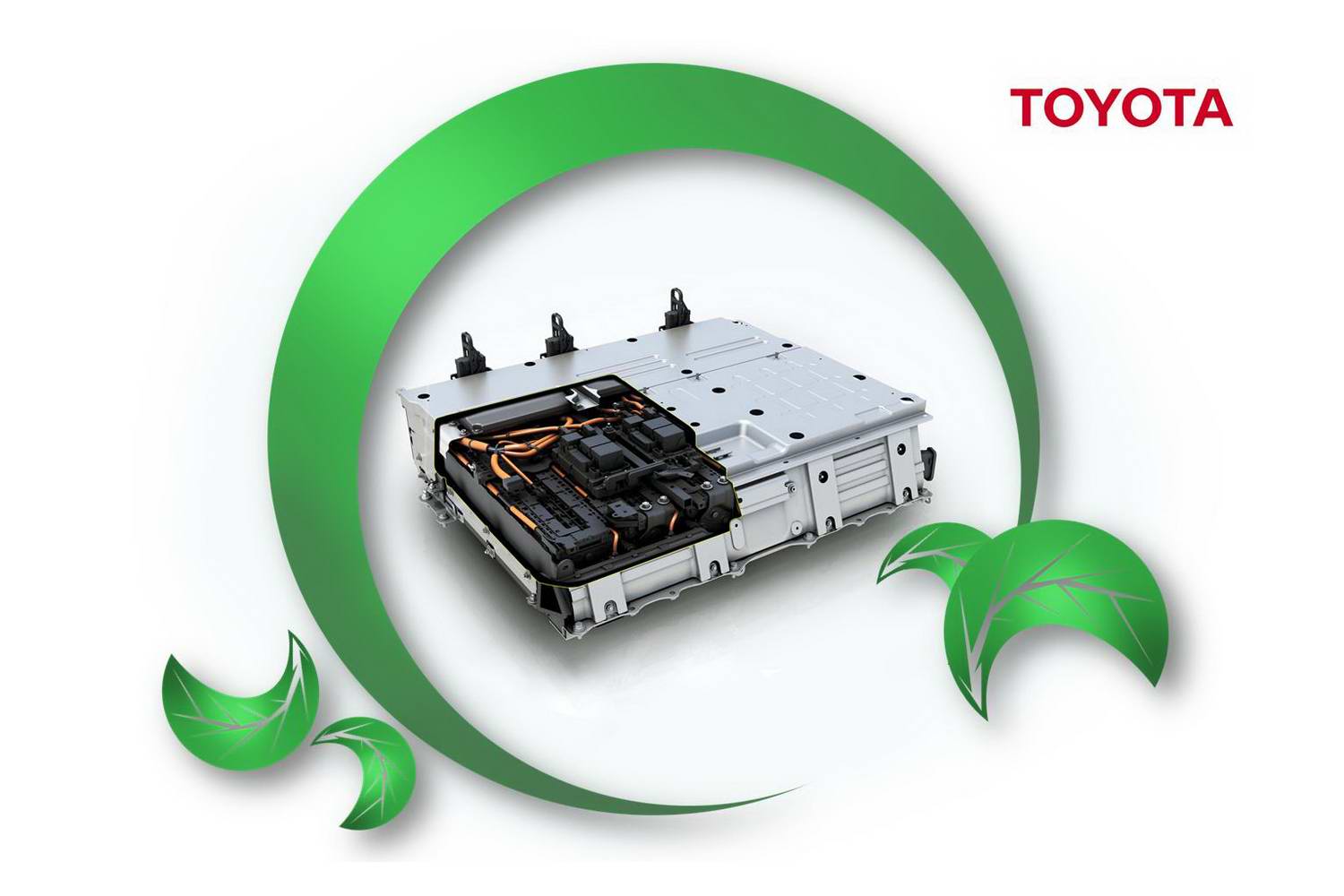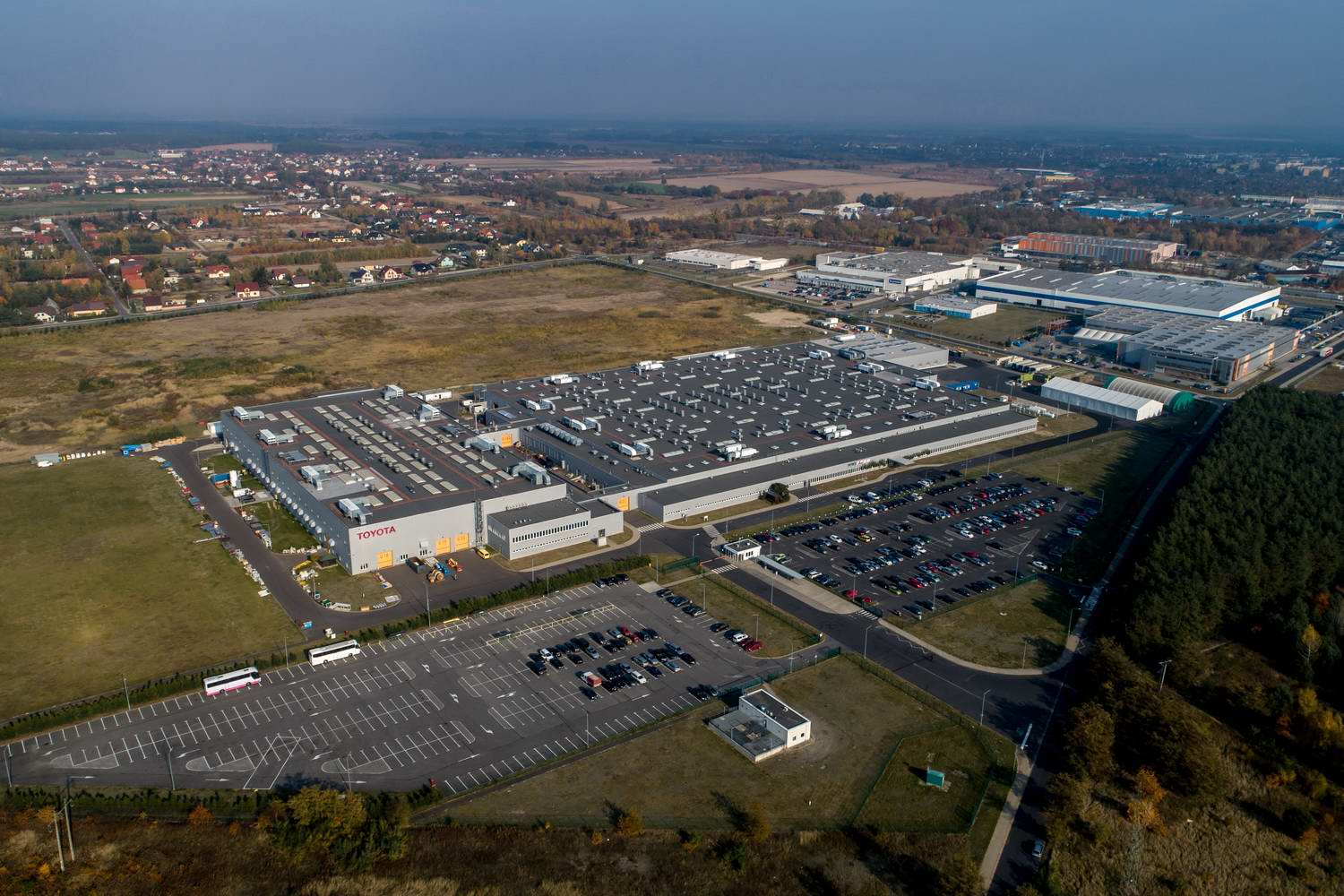Toyota claims that it has finally cracked the knack of making solid-state batteries for cars, and it intends to have the technology on sale by 2025. If that turns out to be true, it could dramatically leapfrog Toyota from something of a laggard in electric vehicle (EV) terms to potential market leader.
According to Automotive News, Toyota has made a breakthrough in the development of solid-state batteries which could give the car-maker a serious leg-up against rivals such as Volkswagen and PSA Group, which are ahead in terms of bringing EV models to the market.
What is a solid-state battery? Well, the clue's in the name - modern lithium-ion batteries suspend their cells in a liquid electrolyte, which helps the electrically charged particles move through the battery, but which has its shortcomings. Mostly, that liquid heats up as the battery charges and is used, and requires careful cooling to work efficiently, and to avoid catastrophic 'thermal runaway' - what happens when a battery overheats and catches fire.
A solid-state battery, using a ceramic-style electrolyte is far safer, far more rugged, and can, in theory, be fully charged in minutes, not hours. In laboratory bench tests, solid-state batteries can be fully charged in around 15 minutes, a figure that would be a major game-changer in electric car terms.
Toyota's senior battery engineer, Keiji Kaita, told Automotive News that the prototype batteries on which the company has been working charge in just that amount of time, but he didn't elaborate on what kind of power capacity the batteries have. Clearly, though, with such short recharging times, an EV with a solid-state battery would be able to do without a big, heavy, long-range battery because it could be topped up so much more easily.
Toyota had been due to show off its solid-state battery tech in a series of autonomous shuttle buses, built for the now-cancelled 2020 Tokyo Olympic games. Even with that disappointment, Kaita says that the company is on course to put solid-state tech on sale within five years.
At first, cars using solid-state batteries will be very expensive, though. It's possible that, as with the original Prius and the first-generation Mirai hydrogen car, we could see Toyota subsidise the prices of such cars, accepting a loss-leader status in order to get the technology out on the road, much as it did with the first-generation Prius in the late 1990s.
Currently, the batteries have to be built in an "ultra-dry, nonaqueous environment" by specialists wearing protective gear, a situation Toyota has described as "less than ideal" and not conducive to mass-production. On the upside, the batteries are said to have impressive performance, and Toyota claims that they can remain up to 90 per cent efficient for as long as 30 years.
It's possibly not coincidental that, just before the announcement by Toyota of a solid-state breakthrough, researchers at the Lawrence Berkeley National Laboratory in California said that they too had seen a major development in solid-state tech. One of the key components of a solid-state battery is the anode (the 'negative' connector, through which electric current enters the battery). Most batteries use a graphite anode, but a solid-state battery works much better if you replace the graphite with lithium. The problem? Repeated charge and discharge cycles cause the lithium to decompose, forming little growths called 'dendrites.' The Lawerence Berkeley researchers say that they've found a way to use a lithium anode without having the dendrite growth problem.
"Our dendrite-suppressing technology has exciting implications for the battery industry," said co-author Brett Helms, a staff scientist in Berkeley Lab's Molecular Foundry. "With it, battery manufacturers can produce safer lithium metal batteries with both high energy density and a long cycle life." Helms went on to say that the breakthrough could lead to batteries powerful and efficient enough to power large aircraft, as well as cars.




